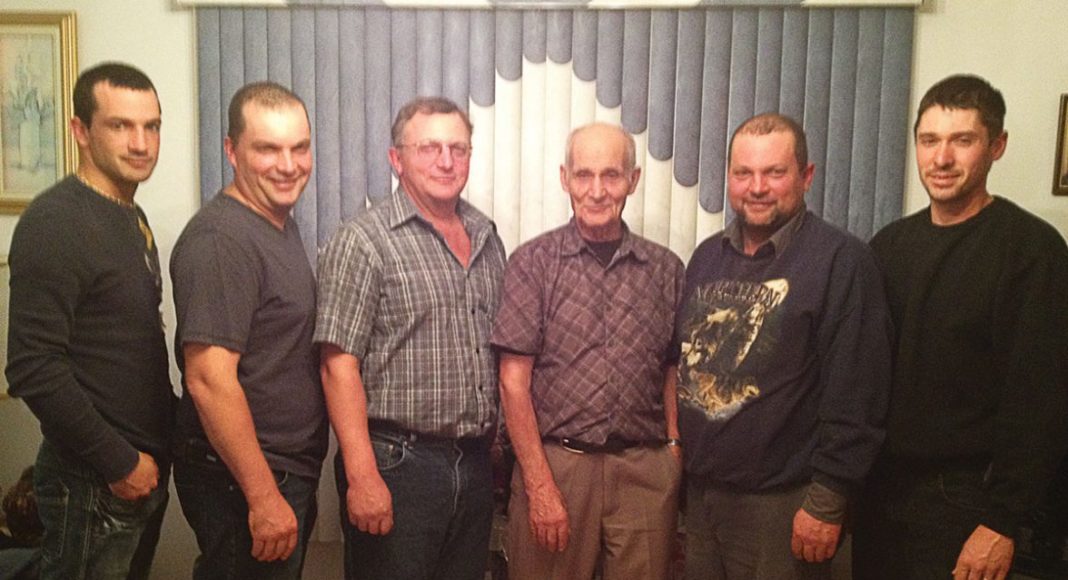Jean-Marie Pelletier grew up surrounded by potatoes. It was hard not to, living in the northernmost point of New Brunswick’s potato belt, where the economy of his hometown, Drummond, is centred on potato production.
Growing up on his father’s farm, the fourth-generation farmer and his two brothers, Rino and Marcel, learned all about potato farming and, with potatoes in his blood, Pelletier purchased his own farm in 1976 in order to grow processing potatoes. He and his brothers, who also have their own farms, work closely together, sharing equipment and storage facilities, to grow three varieties: Shepody, Russets and Innovators. They also grow some seed potatoes for their own use, as well as grain as a rotation crop.
Between them, the Pelletiers grow 530 acres of processing potatoes, producing 132,000 hundredweight a year, primarily for McCain Foods. To produce the potatoes, the Pelletiers hire annually and rely on the help of Jean-Marie’s son Jeannot and son-in-law Marc Bard. Until McCain is ready to process their potatoes, the Pelletiers need to safely store them from the fall harvest to as late as June.
Until 2009, storage on Pelletier’s farm was limited to a small storage facility with no ventilation. That year, however, he invested in a new state-of-the art facility like the ones his brothers already had.
“The new facility has in-ground ventilation so we don’t have to deal with pipes on the floor,” Pelletier says. “In-ground is really expensive but it is a lot more convenient since we don’t have to move ductwork around.”
The first year we built [the new facility], we had a big frost and we couldn’t dig for five days. We were able to bring back the colour in those potatoes and they stored for the winter.
– Jean-Marie Pelletier
With two bins, each with the capacity to hold nearly 24,000 hundredweight of potatoes, the new facility means Pelletier can store 46,200 cwt—33,000 cwt more than his old, unventilated facility holds. He still uses the old storage for seed potatoes, but the processing potatoes go to the new facility, which Pelletier firmly believes has saved him crops.
“The first year we built it, we had a big frost and we couldn’t dig for five days,” he recalls. “We were able to bring back the colour in those potatoes and they stored for the winter. I don’t think we could have done that before.”
The new storage facility made a difference last year as well, when extremely wet weather threatened to rot the potatoes. “We were able to dry them out,” Pelletier says. “Without the ventilation, we would not have been able to do that.”
Saving those crops, and improving their quality, comes with a price—approximately half a million dollars to build the facility and monthly power bills between $1,500 and $1,800. When that figure is added to chemical, repairs and fuel expenses, the cost of production is high.
That cost is a challenge of farming—but its challenging nature is one of the aspects Pelletier likes about the career path he has chosen.
“It’s rewarding in the end,” he says. “Somebody needs to do it to feed people.”











